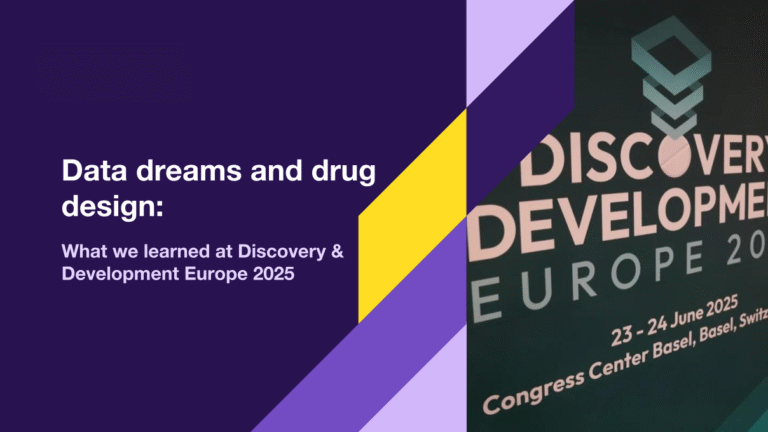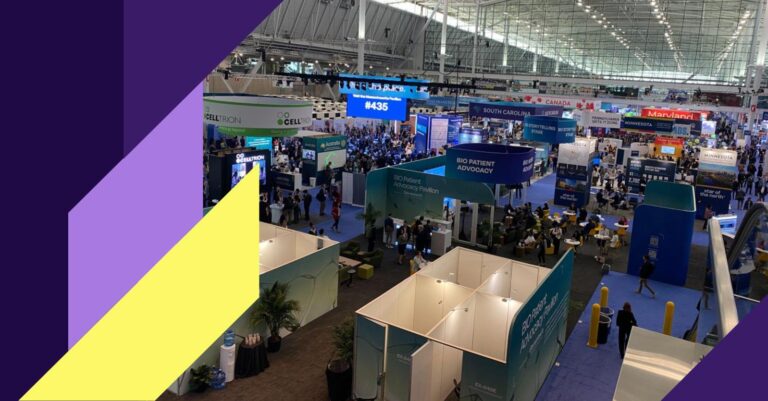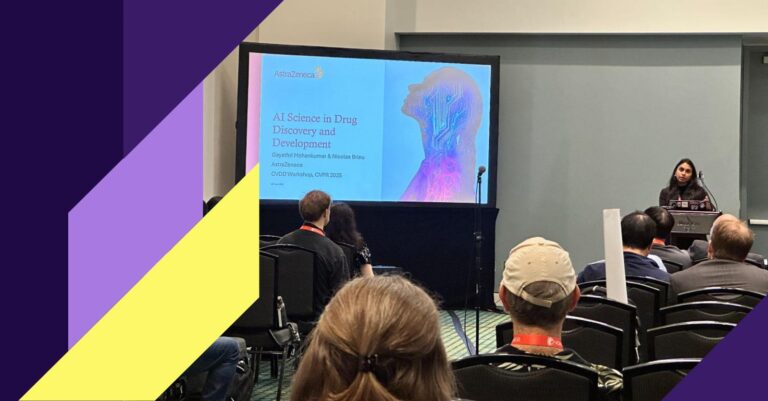How did a small U.S. biotech company improve the analysis of large-scale experiments?
Analyzing large-scale Liquid Chromatography-Mass Spectrometry (LCMS) experiments is a data-intensive process. Many biotech companies struggle with outdated tools that slow down workflows and hinder efficiency. A small US-based biotech company faced similar challenges with their lab-analysis loop. They needed a scalable and automated data platform to improve turnaround time and enable scientists to conduct custom analyses with ease.
Challenge
The company’s primary challenge was an inefficient lab-analysis loop that relied on an outdated and unsuitable toolkit. Key issues included:
- Slow turnaround time due to inefficient data processing.
- Technical debt from legacy software, making future improvements difficult.
- Manual data processing that delayed experiment analysis.
- Lack of flexibility for scientists to perform custom analyses independently.
Approach
To overcome these challenges, the company developed a cloud-native data platform tailored for LCMS experiment analysis and design. The key features included:
- Automatic Data Processing: A system that triggers analysis automatically upon data arrival.
- Web Interface for Scientists: Allowed users to upload experimental data and perform custom analyses.
- Migration to Nextflow: The legacy data analysis pipeline was modernized to be cloud-native.
- Cloud-Based Infrastructure: The solution was deployed on AWS for scalability, leveraging:
- AWS Batch for job orchestration.
- S3 Storage (Intelligent-Tiering/Glacier) for efficient data management.
- AWS ECR (Docker Registry) for containerized workflows.
- RShiny for an interactive and flexible user interface.
This flexible and fast-paced development approach ensured that the system could adapt based on user feedback and evolving experimental needs.
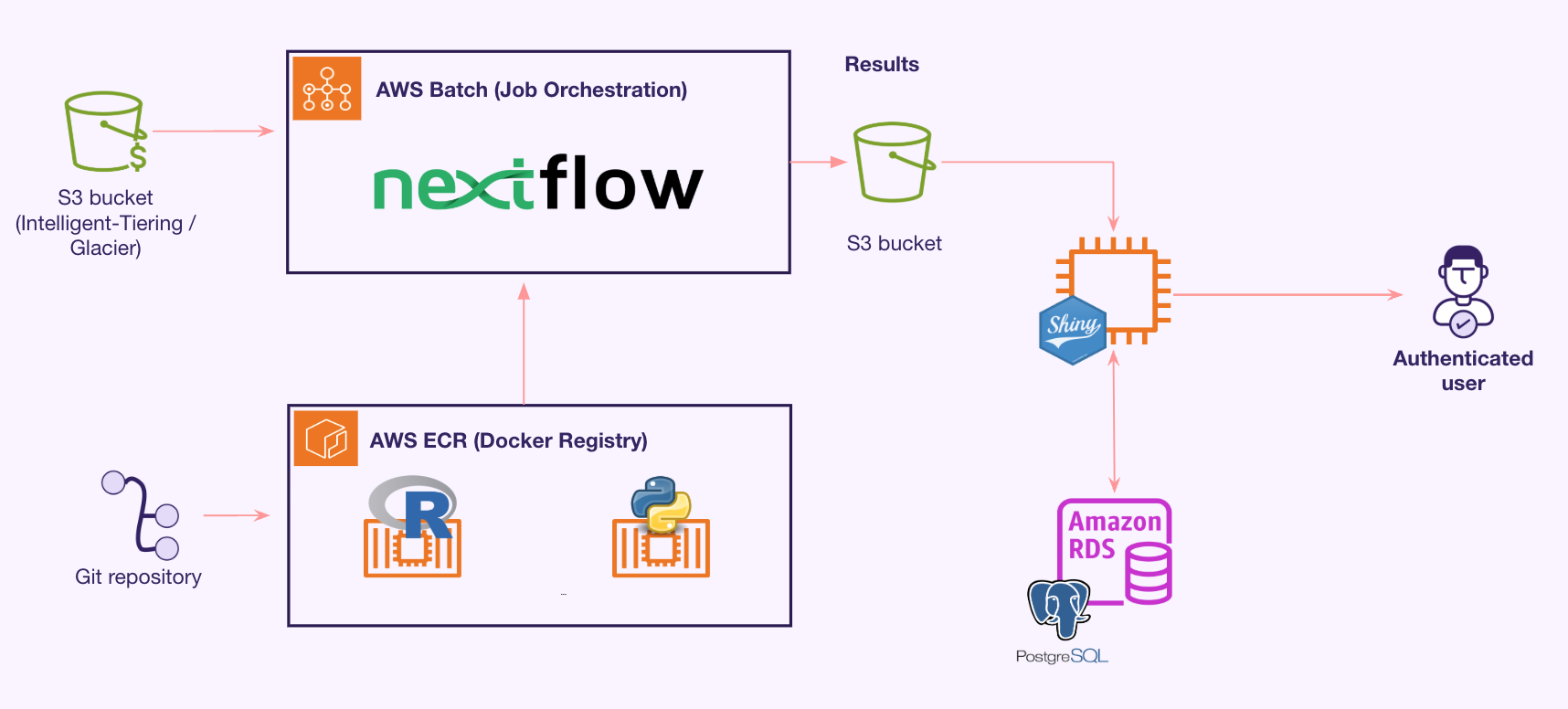
Results
The new platform delivered significant improvements:
Faster Turnaround Time: Automated workflows reduced delays in data processing.
Technical Debt Resolved: Migrating to Nextflow eliminated bottlenecks caused by legacy systems.
Automation & Efficiency: Data processing now triggers automatically, reducing manual intervention.
Empowered Scientists: Users can conduct their own custom analyses via the web interface.
Scalable Cloud Infrastructure: The system grows alongside experimental complexity.
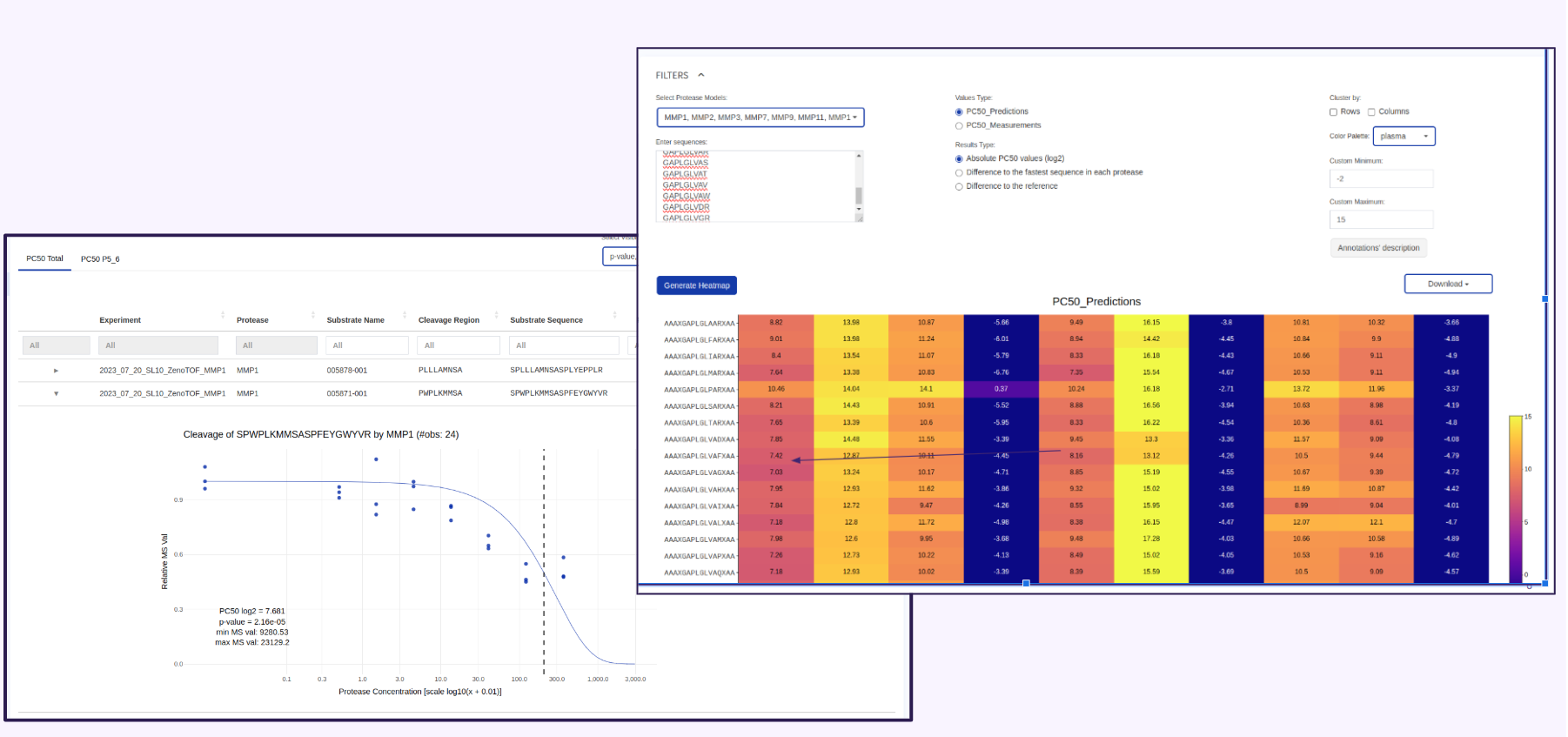
By transitioning to a cloud-native, automated data platform, this US-based biotech company transformed its LCMS experiment analysis process. The new system not only improved research workflows but also empowered scientists with greater control over data processing. This case study highlights the power of modern, scalable technology in revolutionizing biotech research efficiency.
